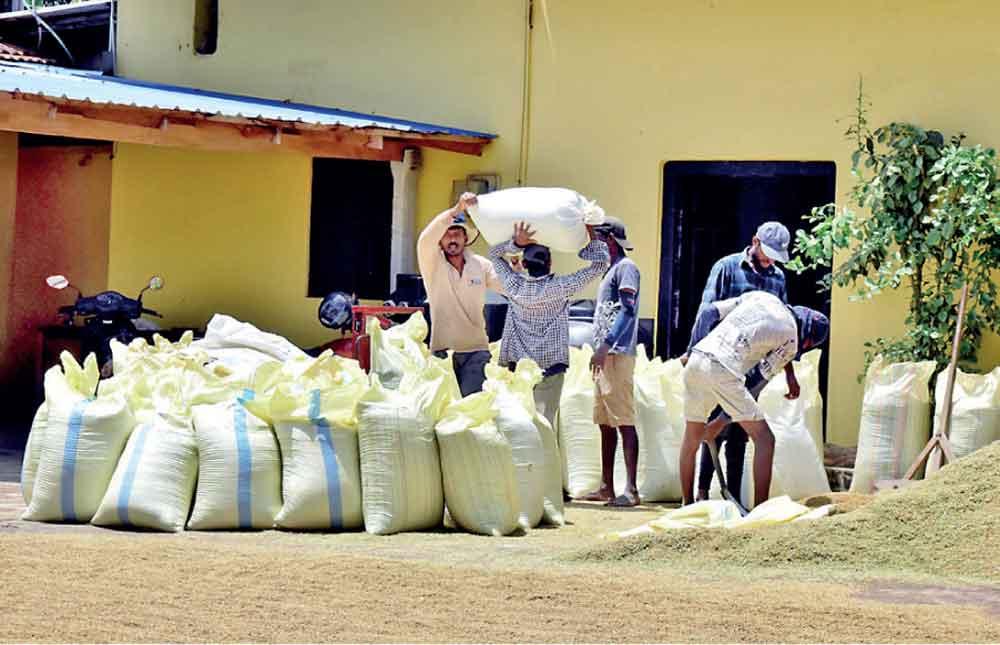Reply To:
Name - Reply Comment

Some folks complain about not having enough rice to cook milk rice this New Year, but the country has made a remarkable comeback from the nadir of economic collapse two years ago
 Sri Lanka enters 2025 on a much better footing than it was a year ago. The country may not be out of the woods yet. Still, the economy has made a tremendous comeback, and the country has finally gained political stability through presidential and general elections.
Sri Lanka enters 2025 on a much better footing than it was a year ago. The country may not be out of the woods yet. Still, the economy has made a tremendous comeback, and the country has finally gained political stability through presidential and general elections.
However, if history is any guide, every time Sri Lanka recorded a modest success, dark clouds of complacency set in and reversed the economic gains, leading to another period of economic stagnation. That eventuality is the primary challenge in 2025. More so, considering that the current Government in power, with its ideological leaning and campaign promises, is more susceptible to being the harbinger of that sense of complacency.
During the first three quarters of 2024, the economy grew at a cumulative 5.2 per cent, and it may grow around 5 per cent for the whole year, a major turnaround from the two previous years of negative growth. The country exited bankruptcy, and the Rupee appreciated against USD by 10%. During the first ten months, the budget deficit was down by 31 per cent, and tax revenue went up by 34 per cent.
Overall, the country has made a remarkable comeback from the nadir of economic collapse two years ago - though some folks are complaining on primetime television news about not having rice to cook Milk Rice to celebrate the dawn of the New Year.
Also on the political front, the Sri Lankans, disenchanted with the old guard, elected a president and a government from a party that had in the past led a violent insurgency to capture power -- without the elites or the military launching a countercoup as it generally happened in many parts of the world, most recently in Thailand.
While the rationale of the electoral choice of the majority of Sri Lankans is yet to be tested, the very spirit of peaceful transfer of power at the end of competitive multi-party elections is something everyone could be proud of.
The current administration cannot take credit for either of the above achievements, but it could for sticking with the IMF program and not upsetting the economic recovery process.
However, now that it is firmly in power and the economy is in a recovery mood, the new Government of JVP/NPP may opt to chart its own economic course this year.
The greatest macroeconomic danger to the economy this year would be the Government walking back on the economic reform agenda of its predecessor. That reform agenda may be unpopular among groups with vested interests, but it worked, hence the economic recovery. There are already signs of the Government walking back on plans to restructure loss-making and under-performing State Owned Enterprises. There are other mutually exclusive goals, such as increasing the productivity of the government sector while keeping its mammoth 1.4 million workforce intact. Such missions are practically untenable.
The lack of clarity on its economic policies would also exacerbate the problem. The emphasis on statism would also affect the investor outlook while rewarding the vested interest in loss-making state-owned enterprises.
Even if the Government does not seek a complete reversal of the economic reform agenda, the reform process would lose momentum – that is not to say its predecessors of the Ranil Wickremesinghe administration was decidedly gung-ho in the process.
The Government itself faces its own dilemma this year. One of the most concerning would be how it could stay true to its manifesto, which is vague at best in the implementation of its policies – and placate a microscopic minority of its core supporters, whose economic views run counter to the economic reality.
One could see the same predicament in the President’s India visit, where he said all the right things, which his predecessor had already told but failed to add anything new and substantial in harnessing India’s economic success to leapfrog ours.
He should avoid the repetition in his visit to Beijing and seek to venture beyond what his predecessors have already done to expand the economic cooperation – as any forward-looking emerging economy would do.
Though its political and economic orientation may be different, the challenge it faced is not unique to the JVP/NPP government. Successive Sri Lankan government policies were the biggest inter-generational drag on the country’s economic prosperity.
The Government should avoid this eventuality. It could do so by setting the most generalizable measure of a country’s economic performance- economic growth rate- as the gauge of its performance. That would also provide a way out of its ideological straight jacket and probably silence its fellow travellers.
For the moment, though, the government members seem to be busy in front of TV cameras, outing the crooks of the former Government. That is a spectacle in which the Yahapalanaya itself indulged, and it ended without a single successful conviction. When that fanfare was over, Yahapalanaya did not have anything tangible to show for the worth of its Government.
The JVP/NPP administration should also avoid that eventuality. The best course of action in the New Year would be alongside the corruption busting, which everyone loves to see; it should stick to the course of economic reforms – and venture beyond what its predecessor had already mapped out.
Happy New Year 2025!